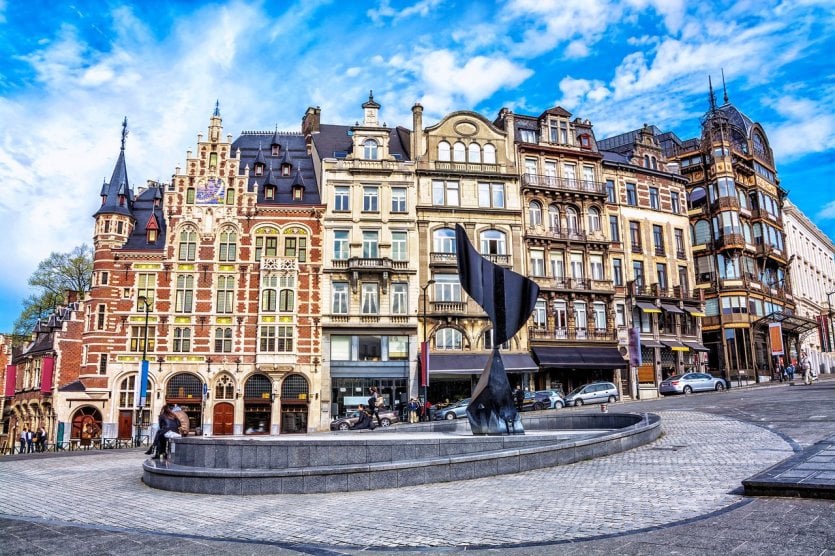
Brussels isn't particularly famous for its museums, but that doesn't mean it doesn't boast some of Europe's most interesting historical and artistic exhibits. Here are the museums worth visiting.
Brussels is one of the world's diplomatic capitals and one of Europe's most important cities, but it's little known for its museums. Yet it has a number of very interesting ones, with a wide range of themes, from ancient and modern art to military history and comics.
Among the best alternatives for discover Brussels through its museumsinclude the Magritte Museum, the Royal Institute of Natural Sciences exhibition, the Train Museum and the Cinquantenaire Museum, the history of the city's delicious chocolate and the exhibition at the House of European History. The latter reviews the city's protagonism during the formation of the European Union, through important historical objects and documents.
1- The Museum of Ancient Art
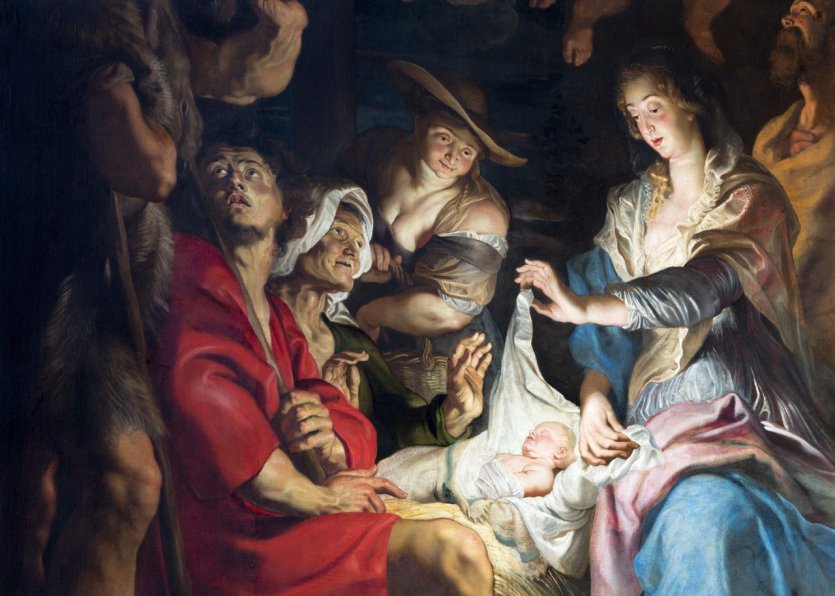
The Musée d'Art Ancien is the most important of Brussels' Royal Museums of Fine Arts. It contains the largest collection of art in Belgium, covering a period from the 15th to the 18th century. Housed in a picturesque neoclassical building designed by Alphonse Balat, you'll find hundreds of works by the great masters of the Renaissance and Baroque eras.
Among the artists represented at the museum are Rubens, Van Dyck, Giovani Battista Tiepolo and Pieter Brueghel the Elder, excellently represented with The Fall of the Rebel Angels and The Census of Bethlehem, two of the most characteristic works in the style of one of the most famous Belgian painters in history.
In addition, the Museum of Ancient Art offers immersive 3D experiences, thanks to the digitization of most of the exhibition rooms, which will take you on a journey through the history of each of the artists and works present on the site. We recommend that you buy your tickets in advance to avoid delays at the ticket offices.
2- Magritte Museum
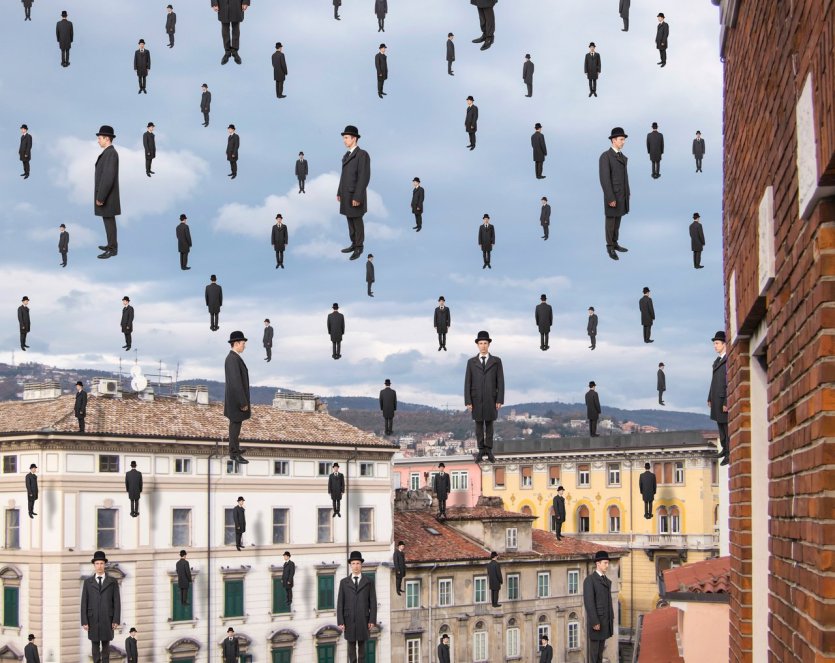
The Magritte Museum is one of Belgium's most famous museums, and contains the largest collection of works by the artist René Magritte, one of the most representative painters of Surrealism. The exhibition is also part of the Musées Royaux des Beaux-Arts, and is housed on the 5 floors of the neoclassical Hôtel du Lotto building on Place Koningsplein in central Brussels.
Most of the museum's collection belongs to Georgette Magritte, the artist's widow. The exhibition also looks at the painter's biography and the influence he had on the Surrealist movement. The museum also presents photographic and cinematographic experiments by the artist who, from 1956 onwards, combined his work as a painter with the production of short films.
The Musée Magritte is one of the busiest museums in Brussels, so we advise you to buy your tickets in advance. You can visit the exhibition on your own or opt for the audioguided tour, which is available in several languages.
3- The Musical Instruments Museum

One of the most interesting places in Brussels for music lovers is the Musée des Instruments de Musique, an exhibition of over 8,000 instruments from all over the world, from the Middle Ages to the present day. Located in the Grand-Place district, this exhibition ranges from guitars and cellos to ancient instruments from Asia and Africa, such as the Indian sitar, the Chinese pipeau and the Arab oud.
The museum is divided into four floors, and on the fourth floor, visitors can play some of the instruments in the exhibition. This makes it an ideal place for an immersive experience, and for a visit with children. The Musical Instruments Museum also offers guided tours and workshops.
If you're a music lover or want to learn about unusual musical instruments, you can't miss this impressive collection that won't leave you indifferent; and if you're ready, you can even get demonstrations with electric guitars, violins and saxophones.
4- Autoworld Automobile Museum
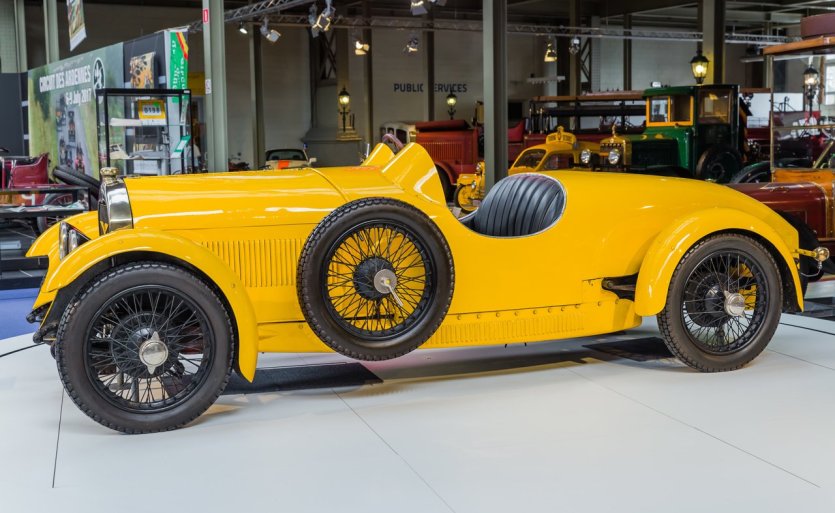
One of the most interesting museums in Brussels is the Autoworld automobile exhibition, an open window on the history of the automobile where you can discover some of the most precious jewels of the automotive industry. These include the famous Rolls-Royce Silver Ghost, the Bugatti Type 35, the Mercedes-Benz 540K, the Alfa Romeo 8C and the Aston Martin DB5, famous for its appearance in the James Bond film.
The exhibition is divided into floors and follows a chronological and thematic order, allowing you to discover everything from primitive models of motorized cars to the fastest racing cars of the 21st century. From the European sports cars of the 1930s and 1940s to the American muscle cars that completely changed the automotive industry.
During your visit to Autoworld, you can also discover the history of aviation through the planes and helicopters on display, as well as enjoying interactive experiences that will enable you to learn more about the impact of the automotive and aeronautical industries on the environment, and the innovations and technologies developed to be more efficient and sustainable.
5- The Belgian Museum of Military History
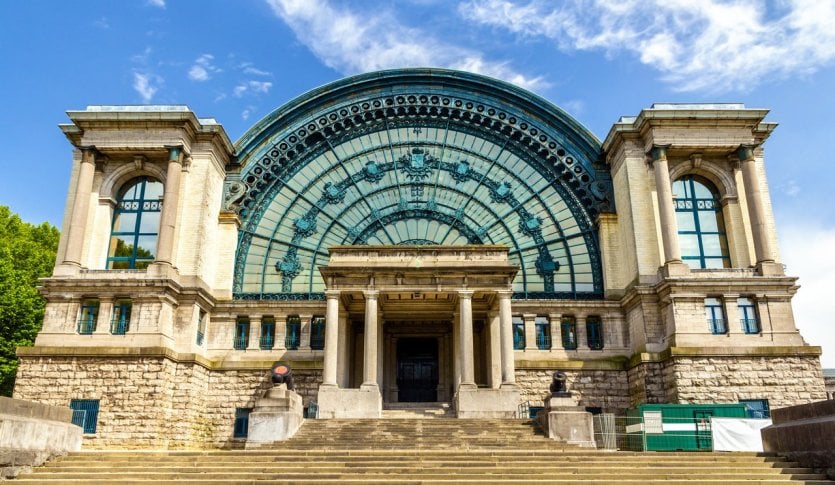
The Belgian Museum of Military History is one of the largest of its kind in the world. It houses not only a vast collection of objects and artifacts related to military history, but also an educational area, making it an ideal place to visit with children. In the museum's halls, you'll find collections ranging from the Middle Ages to the present day.
Exhibits range from weapons, uniforms and flags to military vehicles, aircraft, tanks, cannons and helicopters. But it's the room devoted to the history of the First and Second World Warsthat is most striking. closely linked to Belgian history, it includes a section devoted to the Belgian resistance during the Nazi occupation.
In the museum's educational area, you can learn about the work of peacekeepers around the world and Belgium's efforts to become a pillar of the European Union and one of the diplomatic capitals of the world. To avoid delays, we advise you to buy your tickets in advance. Opting for the guided tour means you won't miss out on the details of one of Brussels' finest museums.
6- Horta Museum
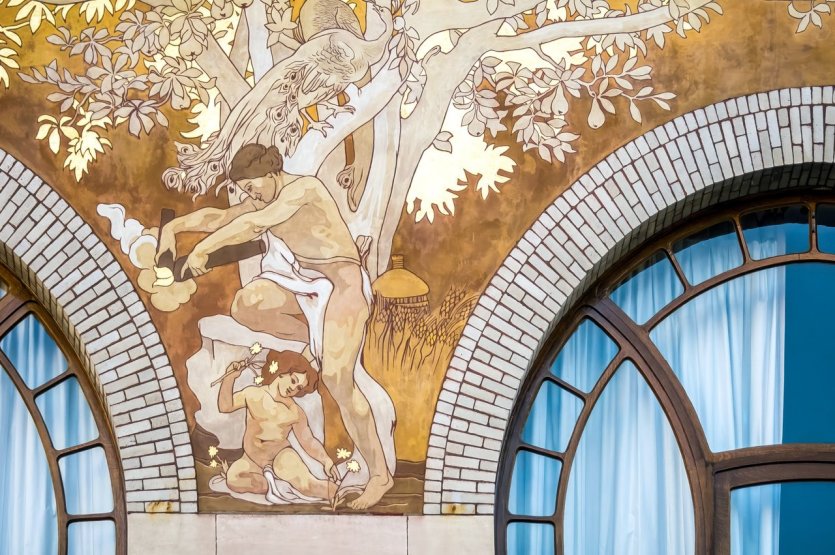
One of the best art exhibitions in Brussels can be found at the Musée Horta, named after the former home and studio of the famous Belgian architect Victor Horta, one of the pioneers of Art Nouveau. In this typical Art Nouveau building, you'll find temporary and permanent exhibitions covering different periods of Belgian art.
The museum also boasts a collection of Byzantine art and furniture, as well as a vast library that belonged to Horta and is considered one of the most important in Brussels. In one of the exhibition rooms, you can access a multimedia overview of the city's history and its role in European artistic and architectural development.
If you'd like to visit a private art collection and one of Brussels' most eclectic buildings, don't miss the Horta Museum. A fascinating place to discover the work of one of Belgium's most influential architects.
7- The Comic Strip Museum
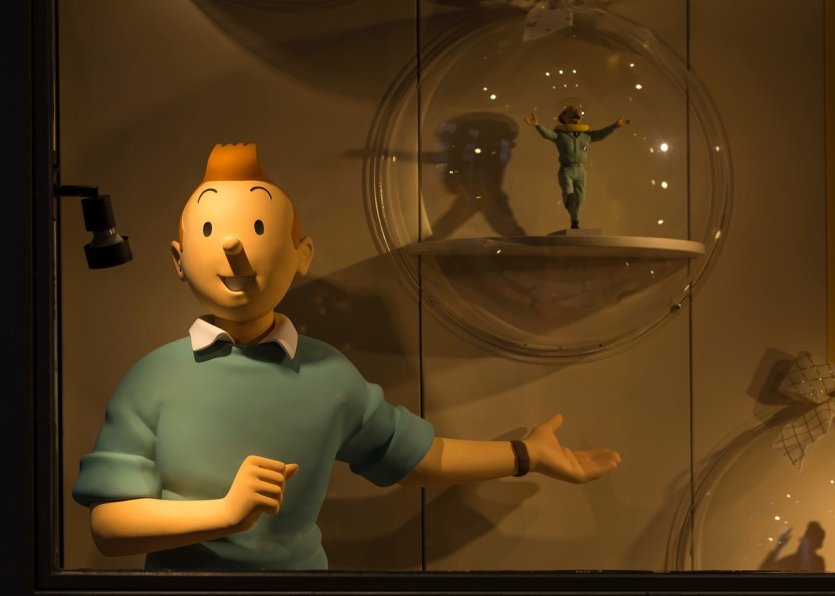
If you're visiting the city with your children and want to visit an alternative exhibition in Brussels, you can't miss the Musée de la Bande dessinée, home to one of the largest exhibitions devoted to comic strips in Europe. In this must-see Brussels museum, you'll find over 9,000 original comic strips, including editions of Belgian classics such as The Smurfs and Tintin.
In addition to the exhibition of originals, the museum also has a library open to the public with over 30,000 copies, where you can browse through classics from all the entertainment channels and priceless reproductions of editions. You can also visit the souvenir store and a themed café.
Brussels is considered one of the leading cities in the development of comics. This museum is therefore an important element in the cultural promotion of this destination. The best way to avoid long queues is to visit the exhibition in the morning.
8- Museum of the Royal Institute of Natural Sciences, Brussels
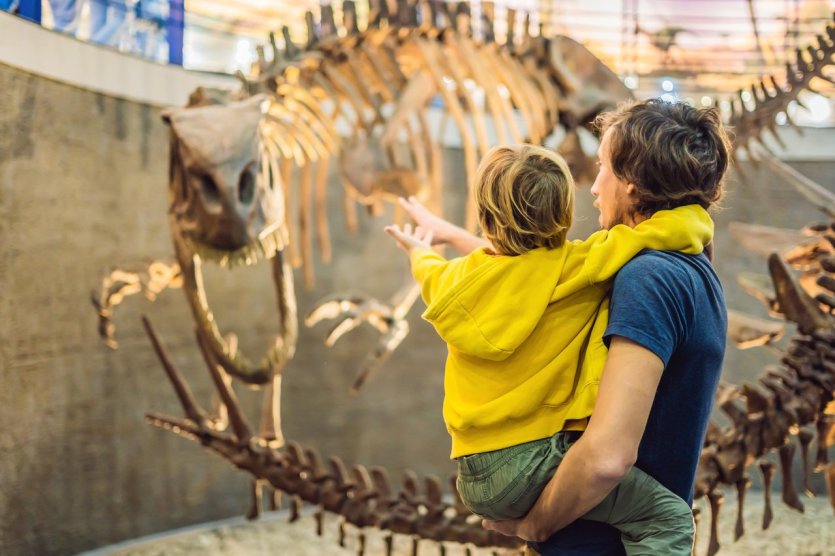
If you're planning to travel with children, one of the best alternatives is to visit the Museum of Natural Sciences in Brussels, which features an exhibition reviewing the country's natural history and a vast collection including objects from geology, mineralogy, botany, zoology and anthropology.
From dinosaur and mammal fossils to a room devoted to insects and arthropods, this museum is the place to discover the curiosities of the natural sciences. You can also visit an interactive exhibition and discover the research work of the museum's scientists.
From the building's second and third floors, you can enjoy one of the best views of the Parc Léopold, one of Brussels' most beautiful green spaces.
9- Brussels City Museum

The Musée de la Ville is not the best-known, largest or most-visited museum in Brussels, but it is the one that best reflects the spirit of the Belgian capital. It traces the history of the city from its origins to the present day, through objects, paintings, sculptures, tapestries and other elements of local culture.
With over 7,000 items from the Stone Age to the 20th century, the exhibition includes some of Belgium's most representative works, such as Manneken Pis, the famous statue of a boy urinating. It is one of the symbols of the Belgian capital. You'll also find a large number of tapestries, another distinctive Belgian object.
During your visit, you can also visit the Maison du Roi, the Gothic building that houses the museum and is one of the oldest and most remarkable buildings on the Grand-Place.
10- Museum of Modern Art
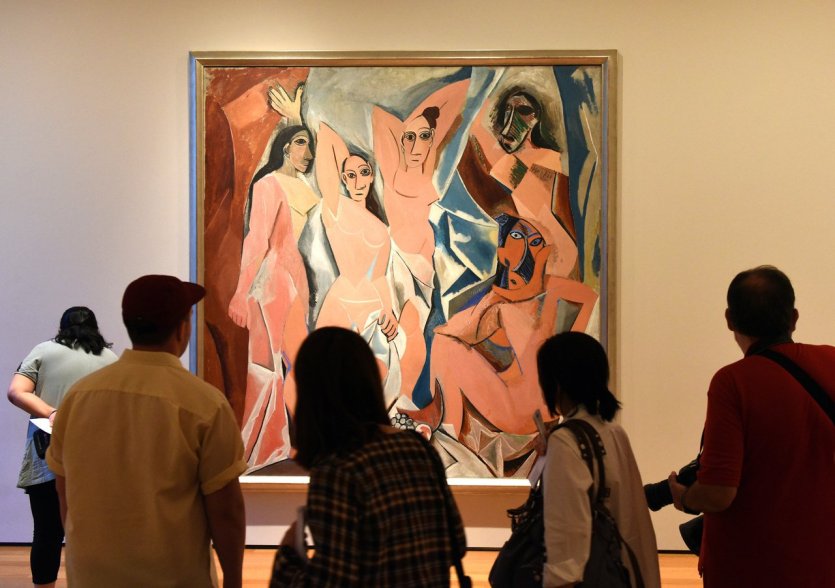
Alongside the Musée d'Art Ancien, the Musée d'Art Moderne is the most important of Brussels' Royal Museums of Fine Arts. It houses over 8,000 contemporary works, including paintings, sculptures, photographs, videos and other multimedia reproductions. There's also an extensive library of specialized books and magazines.
Among the temporary and permanent exhibitions, you can revisit the work of artists such as Pablo Picasso, René Magritte and Marcel Broodthaers. But also immerse yourself in the artistic traditions of the city, which had a major influence on the surrealist style that began to develop in the 19th century. This school of painting is behind most of the exhibitions.
One of the most striking aspects of the museum is that eight floors of the building are located in an underground crypt, allowing you not only to revisit many of the major works by emblematic artists of modernism, but also to marvel at the architecture of the site.
11- Cinquantenaire Museum

The Cinquantenaire Museum owes its name to the fact that it is located in the Parc du Cinquantenaire, opened in 1880 to commemorate the 50th anniversary of Belgium's independence. The park boasts a vast collection of historical, archaeological and artistic objects, enabling visitors to learn more about Belgium's and the world's past.
From Bronze Age and Iron Age artefacts to Roman and medieval pieces, the museum presents a wide variety of exhibits, including collections of Asian art, Chinese ceramics and sculpture, Islamic art and Japanese textiles. Weapons, uniforms and military history are also on display.
One of the museum's rooms houses the largest collection of decorative art in Brussels, featuring glass, ceramics and silver, as well as tapestries and furniture from different periods and cultures. Don't forget to visit the section devoted to the history of the automobile, which will complete your visit to the Autoworld museum.
We advise you to book your tickets in advance on the museum's official website, to avoid delays at ticket counters and benefit from discounts.
12- BELvue Museum
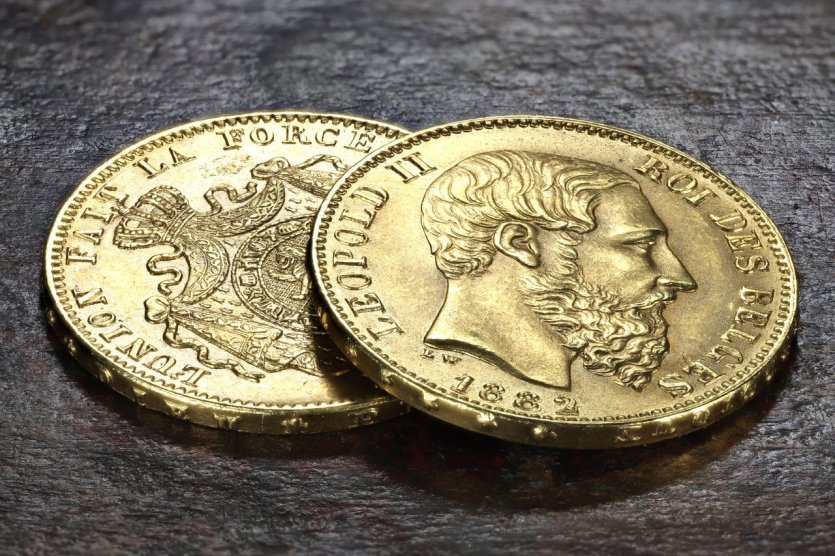
The BELvue Museum is another Brussels exhibition that focuses on Belgian history and culture. It does so through a collection of over 7,000 objects and works of art linked to Belgian tradition, including ancient coins, medals, military uniforms, declassified documents and photographs.
The museum's various exhibits are divided into thematic sections, ranging from prehistory to the present day, and including themes essential to the formation of Belgium. These themes include independence, resistance during the world wars, equal rights and the country's emergence as a pillar of the European Union.
The museum is located in the Hotel Bellevue, and is a must-see for families and children alike, as the multimedia room presents the history of Belgium in a variety of audiovisual formats. This was the official residence of the kings of Belgium. You'll appreciate both the exhibits and the architecture of the building.
13- Brussels Train Museum
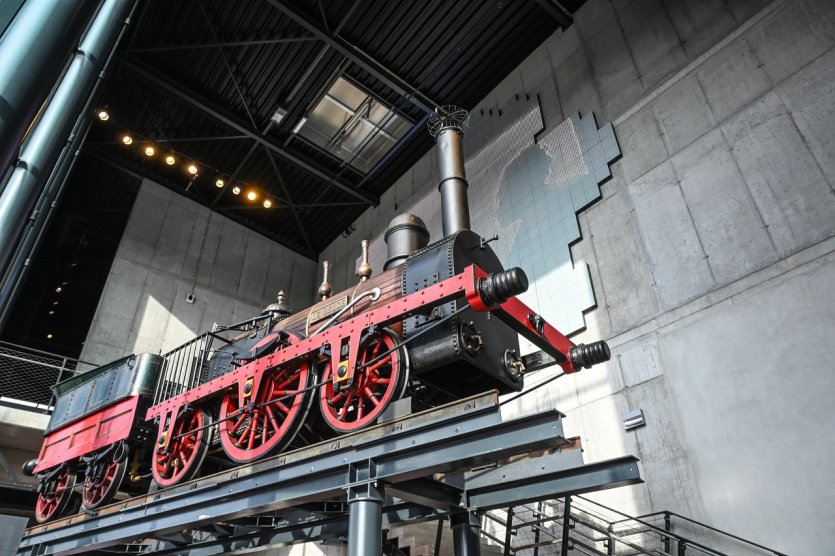
The Brussels Railway Museum is not part of the city's main circuit, but it does present one of its most interesting exhibits. Here you'll discover a vast collection of locomotives and carriages, displayed in different themed rooms, arranged in chronological order.
From the first steam trains to modern high-speed trains, the museum lets you discover how each of them works, and see some gems of railway history, such as the Pays de Waes locomotive. It is considered Europe's oldest locomotive. A section is also dedicated to the Orient Express, the luxury train that linked Paris to Istanbul and inspired the works of Agatha Christie.
The museum offers temporary activities such as train rides on certain days of the week. We recommend, however, that you check the availability of these excursions on the museum's website.
14- The House of European History

One of Brussels' most famous public museums is the House of European History. The aim of this exhibition is to tell the story of the European continent, from the Second World War to the present day. It includes photographs, documents, artifacts, films and objects from everyday life, giving a glimpse of what it was like for Belgian citizens during the war.
The museum's permanent exhibition is organized into four thematic galleries, each looking at European history through the prism of Belgium. In the galleries, you'll find elements on the world wars, the construction of the European Union, daily life on the continent and immigration.
During your visit to this museum, you can also discover the building that houses it, designed to house the European Parliament in 1973 until it was refurbished as an exhibition hall in 2017. Admission to the museum is free.
15- Halle Gate Museum
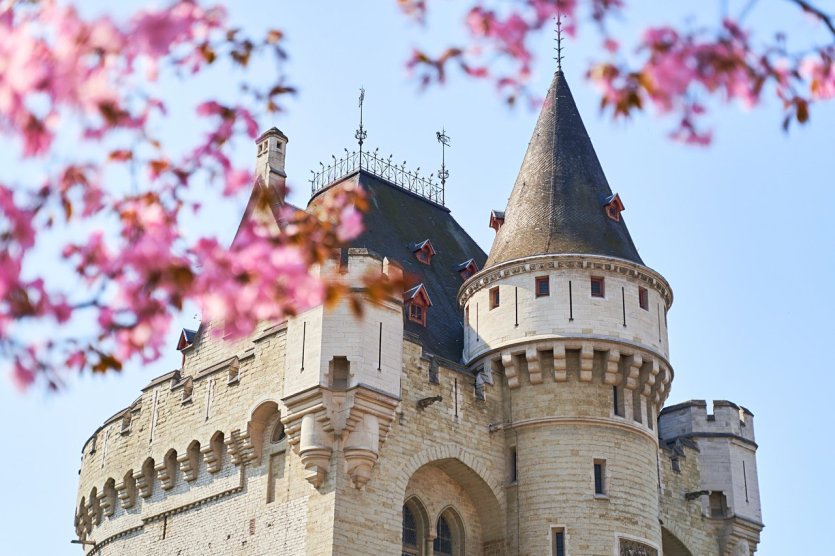
The Porte de Halle is one of the last entrances to the city of Brussels. As well as being an attraction in its own right, it also houses a museum containing a collection of objects on the city's ancient history, from the 14th century, when the gate was built, to the 19th century.
Among the exhibits are weapons, costumes, tools, furniture and objets d'art, as well as a reconstruction of a former antique store. the "Coudenberg Cross", a carved ivory object dating from the 11th century, is one of the most precious pieces in the exhibition.
The museum also includes a section devoted to the evolution of Brussels' architecture and town planning, which has varied greatly from medieval times to the present day.


